Published Nov 21, 2024
The Starfleet Manual for Going Rogue
What drives Starfleet officers to disobey orders?
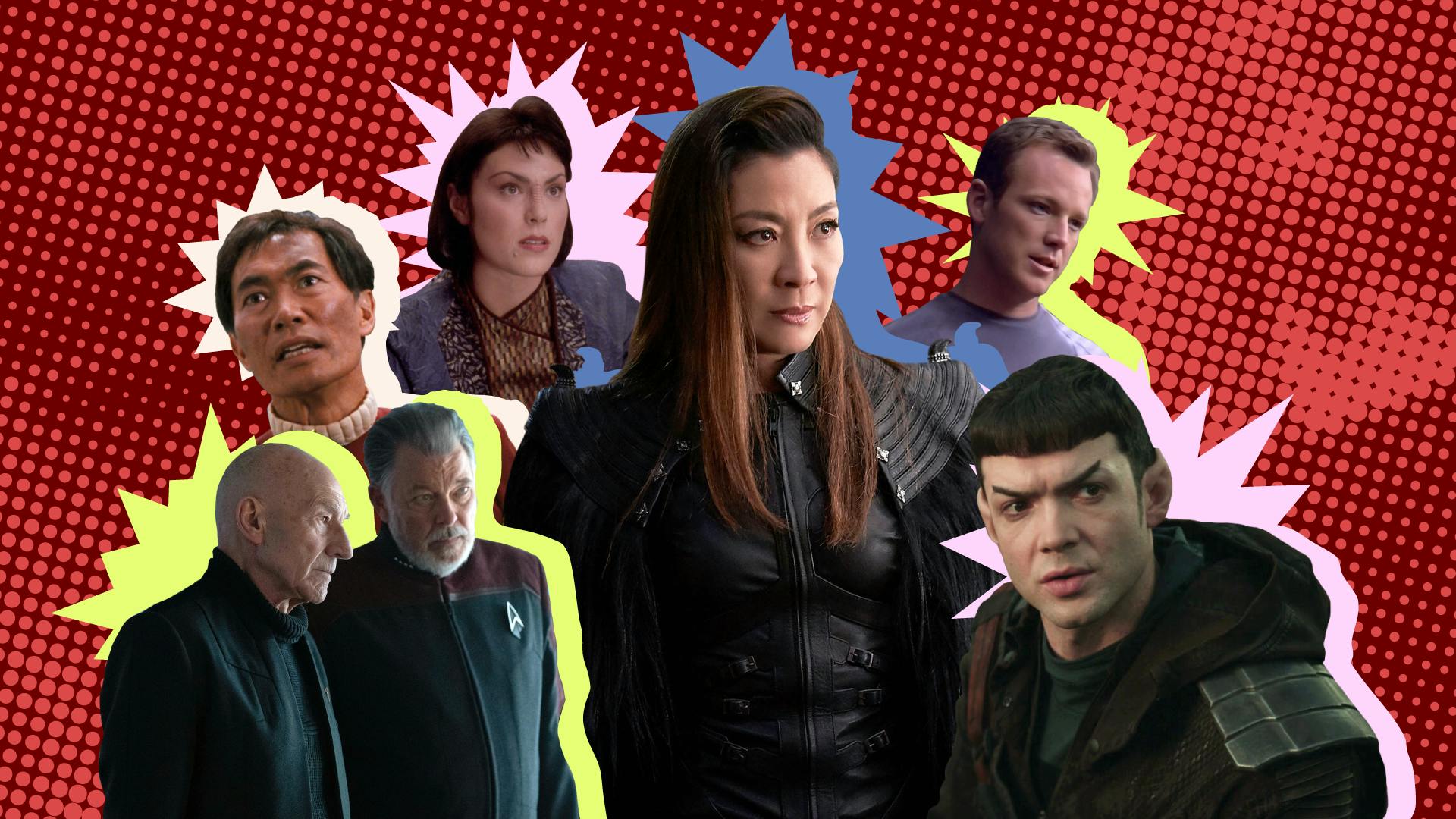
StarTrek.com
Set to premiere on Friday, January 24, will offer new insight into Starfleet's most secretive division as it follows on a mission to protect the Federation. Such rogues and scoundrels are commonplace in Section 31, but the rest of Starfleet has also seen its personnel rebel against authority on occasion for a variety of reasons.
Join us as we highlight a selection of the primary motivations that have driven Starfleet officers to disobey orders and examine numerous instances in which these typically disciplined individuals decided that "going rogue" was their best course of action.
The Appeal of an Important Cause
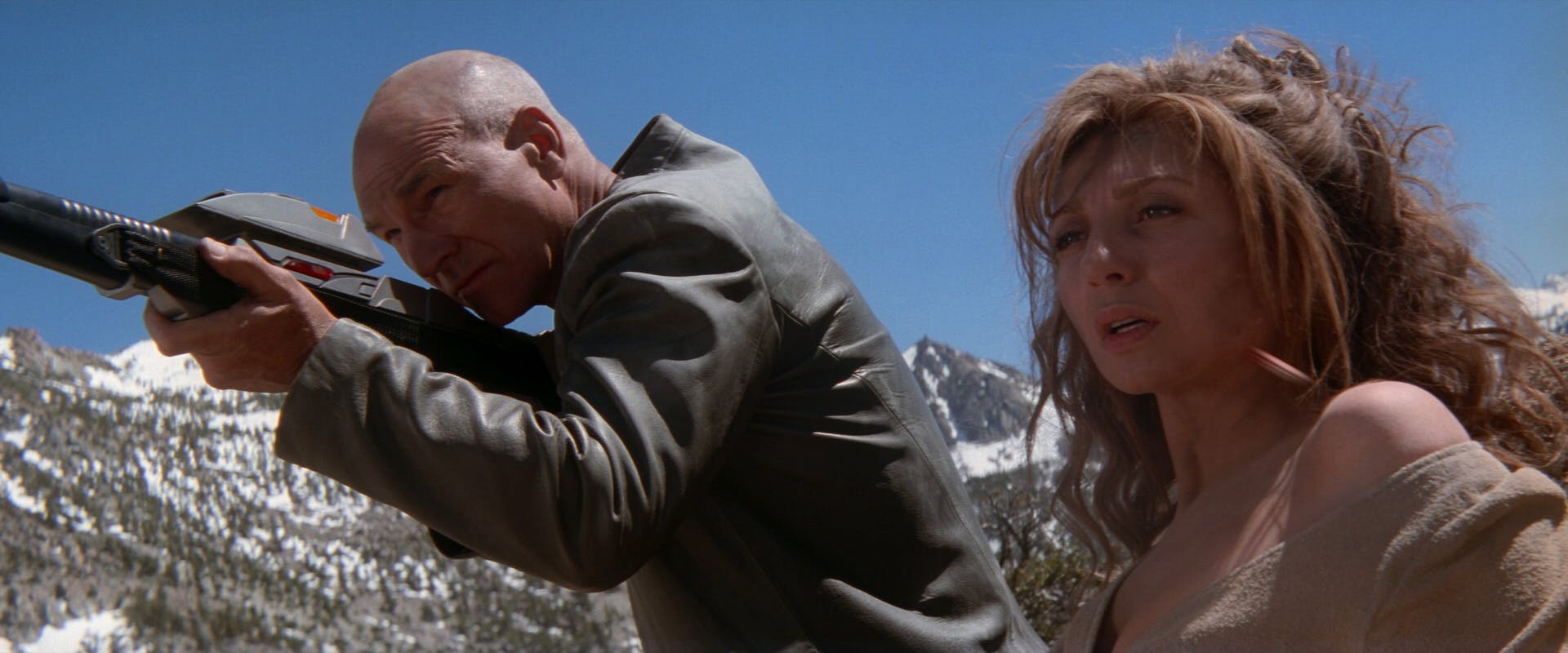
Star Trek: Insurrection
StarTrek.com
Before we jump in, it's important to note that there will be quite a bit of overlap between our informal categories. After all, one would expect a motivation strong enough to convince a Starfleet officer to defy the chain of command to be complex! With that being said, it's no surprise that a predominant factor necessary to push upstanding individuals into rebellion is a noble cause. Such selfless acts of defiance align with Starfleet's ethos to help others and protect the innocent whenever possible.
Such was the case in , when Captain Jean-Luc Picard was repulsed by the Federation Council's openness to forcibly relocate the Ba'ku in order to harness the regenerative properties of their planet's radiation. The rest of the U.S.S. Enterprise-E's senior staff soon joined him in the effort, as .
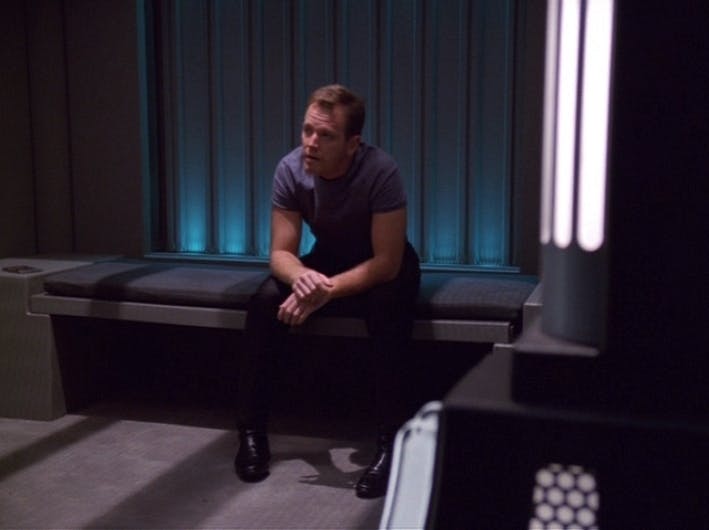
"Thirty Days"
StarTrek.com
Tom Paris felt that same level of responsibility in ’s "." The Moneans, who inhabited an interstellar ocean confined within a circular containment field, were concerned about the imminent dissipation of their water world. Paris discovered that the Moneans' oxygen refineries were taxing the reactor responsible for holding the ocean together. The Prime Directive prevented the U.S.S. Voyager from interfering, yet Paris proceeded with an unauthorized plan to destroy the refineries. The effort ultimately failed, leaving Captain Janeway to demote Paris and sentence him to thirty days in the brig.
This was in contrast to Picard's successful move against the admiralty in the situation involving the Ba'ku, though the disparity in outcomes and punishments (or lack thereof) demonstrates the volatility associated with such insubordinate undertakings. Picard and Paris shared similarly well-intentioned motivations, but such virtuous mindsets could generate severe consequences without guaranteeing a favorable outcome.
The Pull of Personal Convictions
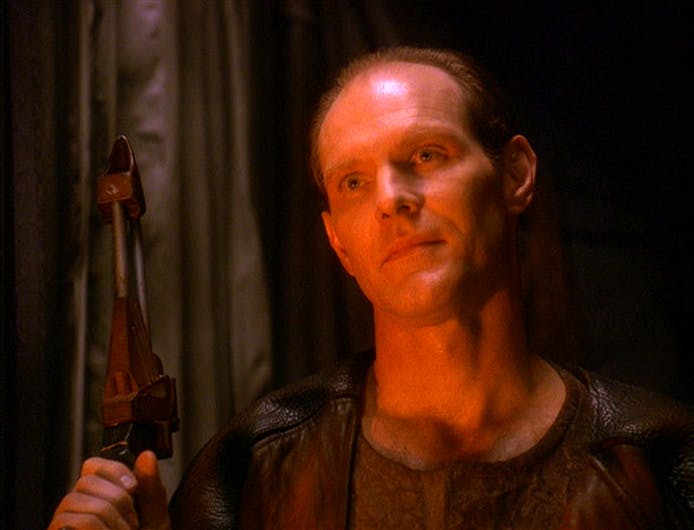
"For the Uniform"
StarTrek.com
Intense personal conviction stands as a persuasive force that is significantly intertwined with the urge to defend an important cause, though one of the two may outweigh the other depending upon the circumstances.
For instance, Federation citizens unhappy with the concessions made in a peace treaty with felt threatened by their Cardassian counterparts who were equally upset about their government surrendering certain worlds to the Federation. The two powers perceived the accord as an essential compromise to keep the peace, but that did not stop Federation citizens from forming or Cardassian civilians from creating their own paramilitary groups.
The Maquis included many former Starfleet officers, ranging from Chakotay and B'Elanna Torres to and Michael Eddington, who believed in the peace process. However, they felt a duty to the people of the Demilitarized Zone and rejected Starfleet's approach, leading them to resign their commissions and follow their convictions to defend Maquis colonies.
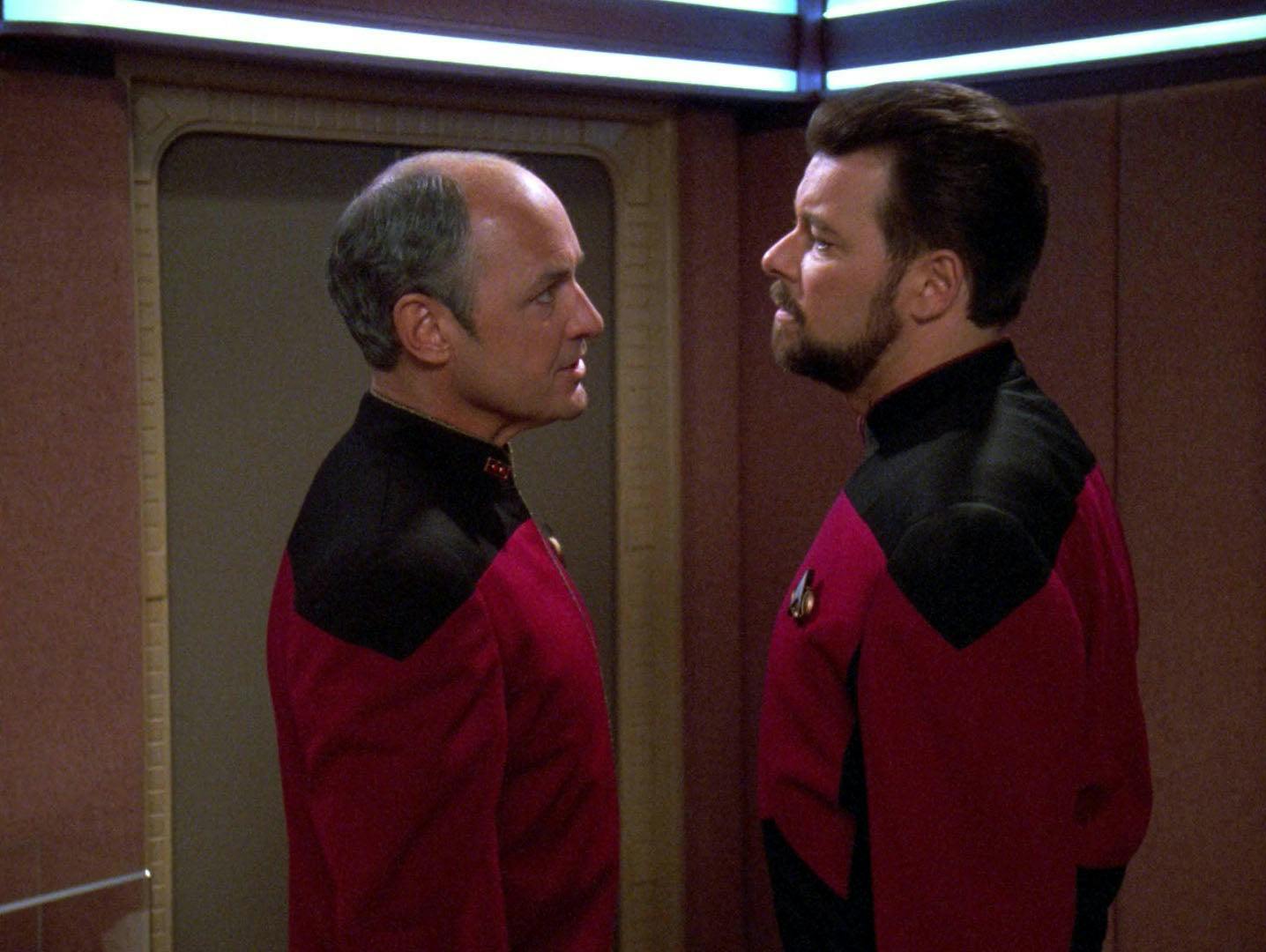
"The Pegasus"
StarTrek.com
Commander William T. Riker faced his own moral quandary with potentially galaxy-altering repercussions in 's "." Riker struggled to determine whether or not to inform Captain Picard that and other high-ranking officials sought to violate the Federation's treaty with the Romulans and continue his experiments for a phasing cloaking device originally developed on the U.S.S. Pegasus.
Pressman's intentions were not exactly those of a model officer, but he had ordered Riker to keep the information confidential. Pressman's plot may have altered the balance of power in the quadrant in the Federation's favor, but it would have probably soured to the point of armed conflict. With this in mind, Riker opted to disclose the truth to Picard, resulting in a court martial for Pressman and an investigation into Riker's own actions aboard the Pegasus over a decade before.
The Desperation of Difficult Circumstances
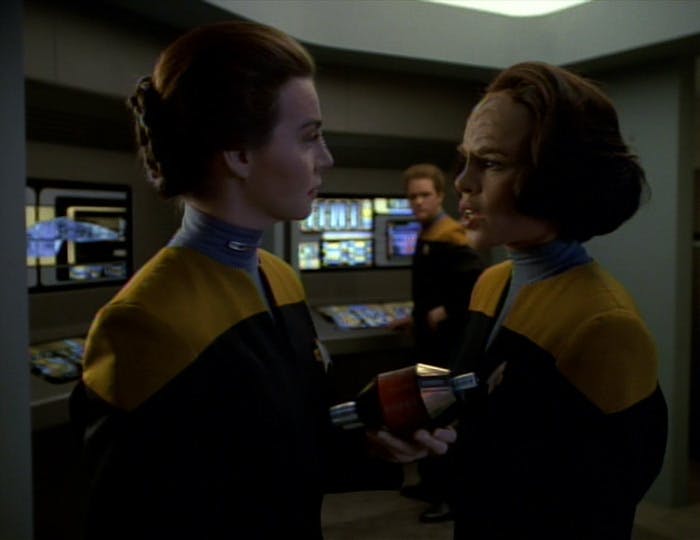
"Prime Factors"
StarTrek.com
As crucial as one's convictions can be, there were also numerous occasions where desperation born from extreme circumstances caused Starfleet officers to betray their obligations to the chain of command.
Isolated on the far side of the galaxy with only a remote chance of returning to Earth in their lifetimes, the crew of the U.S.S. Voyager found themselves in that very predicament. In Voyager's "," the temptation inherent in harnessing the Sikarians' spatial trajector technology to transport Captain Janeway's ship nearly halfway home in an instant proved too great for B'Elanna Torres, Seska, and even Tuvok to resist. While Janeway adhered to her ideals, these officers subverted her authority and made an illicit deal to acquire the technology against the wishes of the Sikarian government. Tuvok's involvement was at least partially inspired by a desire to help the captain, but despair over the seemingly impossible journey ahead had propelled Torres and Seska's deeds.
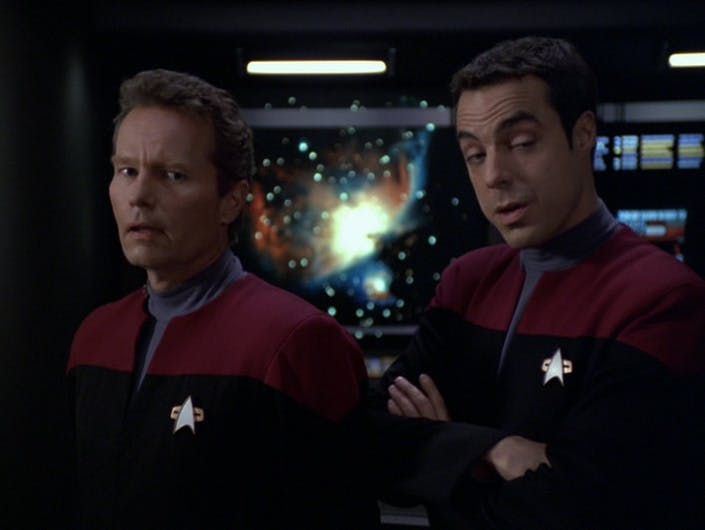
"Equinox"
StarTrek.com
Captain Ransom and the U.S.S. Equinox crew found themselves in precisely the same scenario, yet the ship's smaller size and the casualties it incurred against the Krowtonan Guard prompted its captain to chart a far different course from that of Voyager. In search of a faster way home, Ransom oversaw the capture and sacrifice of beings with a physiology that could be converted into a compound capable of enhancing the Equinox's warp engines.
Born out of hopelessness, this drastic transgression nevertheless contradicted the captain's personal ethics and those of Starfleet as a whole. Despite the great distance from Starfleet Command and a regulation which gave captains latitude in preserving their crew, Ransom knew that trading lives for the sake of convenience was inexcusable. In tragic irony, Ransom's own first officer staged his own mutiny once the captain made up his mind to surrender to Janeway.
The Allure of Loyalty
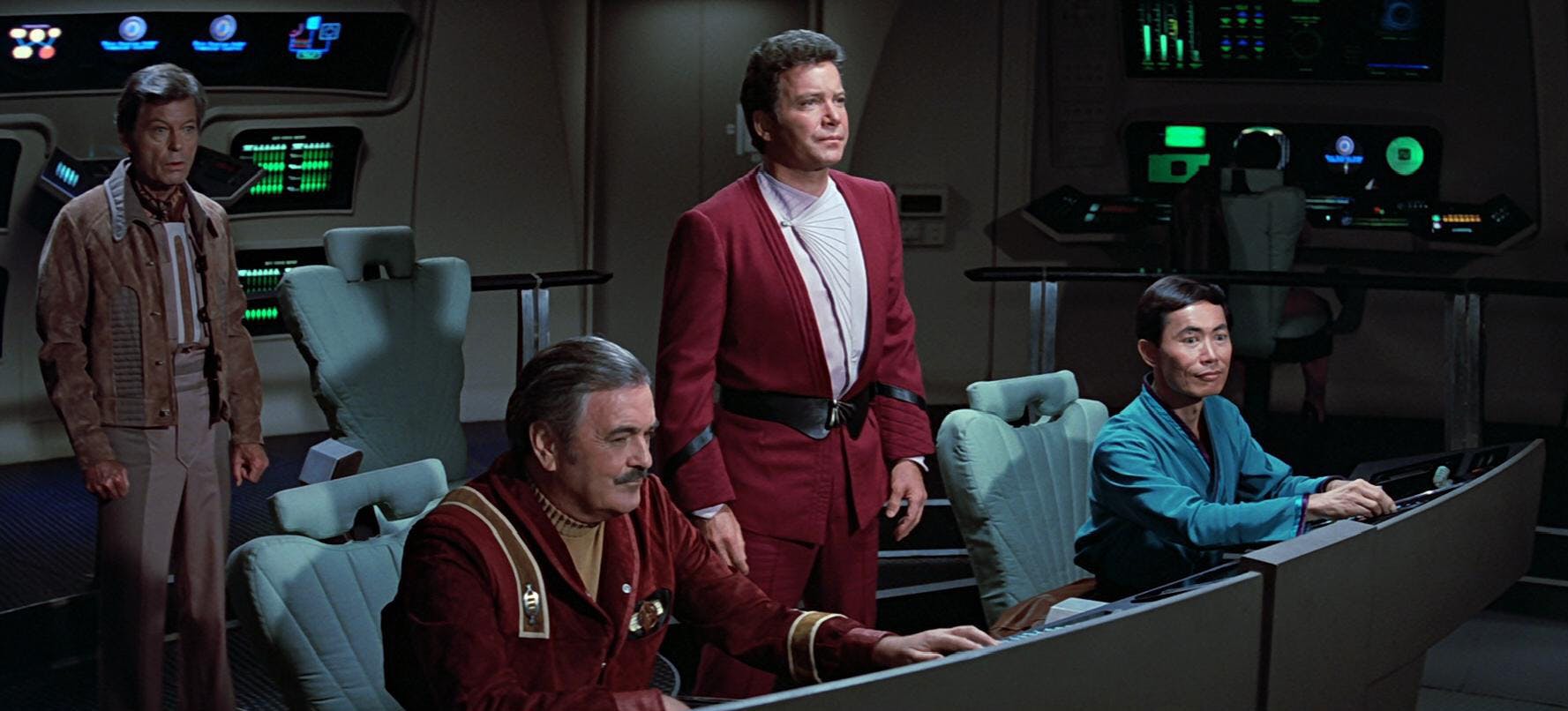
Star Trek III: The Search for Spock
StarTrek.com
Although loyalty is a very personal conviction, this particular trait has been so prevalent among Starfleet officers who have exhibited rogue behavior that it is worthy of its own category.
As a characteristic valued by an overwhelming majority of Starfleet's personnel, loyalty was at the root of some of the most notable rebellious acts in Star Trek history. A devotion to their friend Spock motivated James T. Kirk and his longtime crew to disobey their superiors and steal the U.S.S. Enterprise so that they could transport the Vulcan's body from the Genesis Planet to Mount Seleya in .
Intriguingly, this strategy mirrored Spock's own theft of the Enterprise in ' "," as the science officer felt compelled to respond to a distress call from La'An Noonien-Singh in spite of Admiral April's orders.
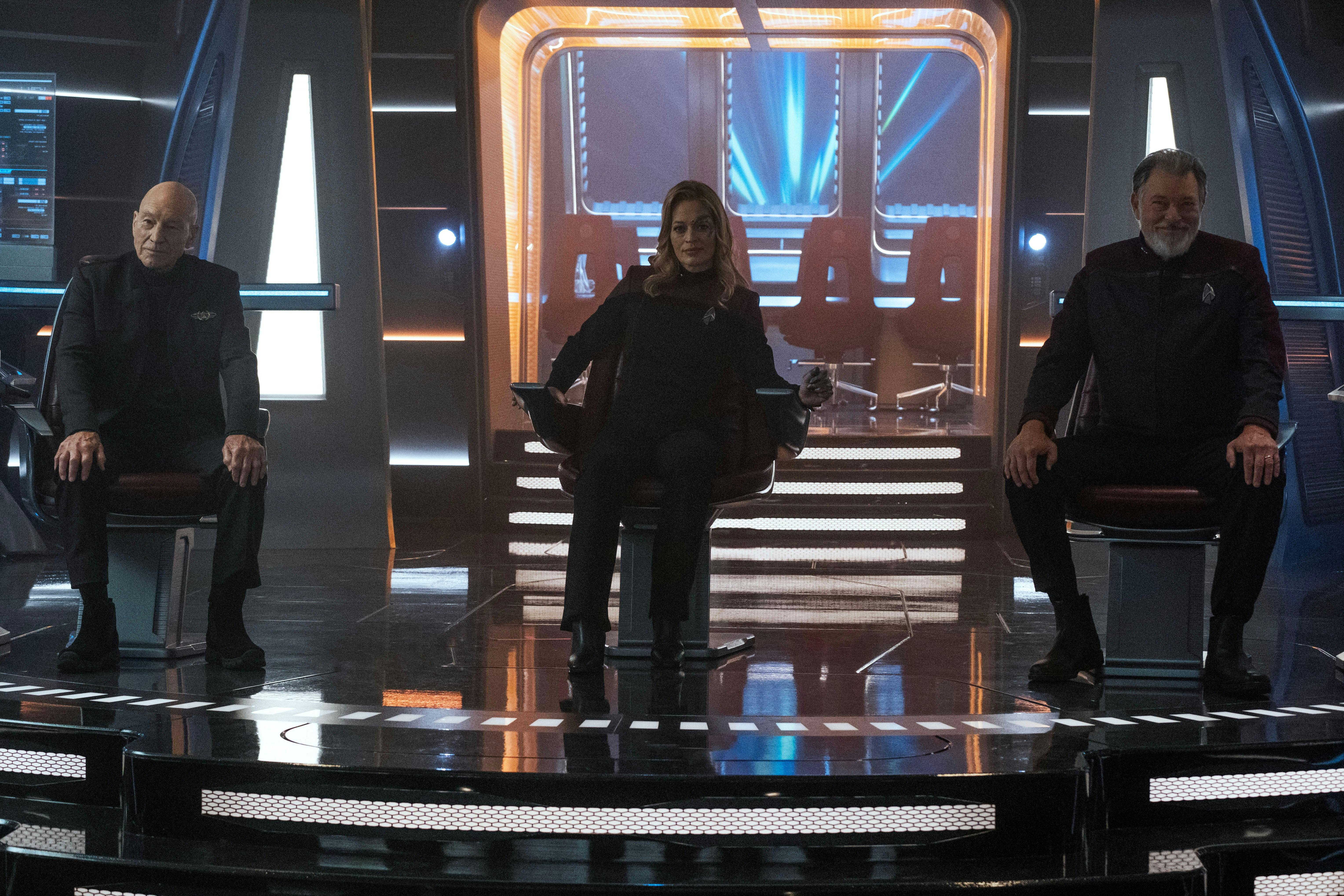
"The Next Generation"
StarTrek.com
Starship-related detours seem to be a theme for the fleet's loyal officers. Captain Hikaru Sulu became complicit in the U.S.S. Enterprise-A's maverick mission to prevent the Federation president's death by informing Captain Kirk of the peace conference’s location and hurrying the U.S.S. Excelsior to Khitomer in order to back up his former commanding officer.
In another extreme case, Jean-Luc Picard and William T. Riker proved more than willing to improperly divert the U.S.S. Titan-A as a means of rescuing Beverly Crusher in 's "." The layers of loyalty ran so deep that, upon discovering Picard's deception, Seven of Nine countermanded Captain Shaw and redirected the ship to support her friends' defiant quest.
The Influence of Enigmatic Values
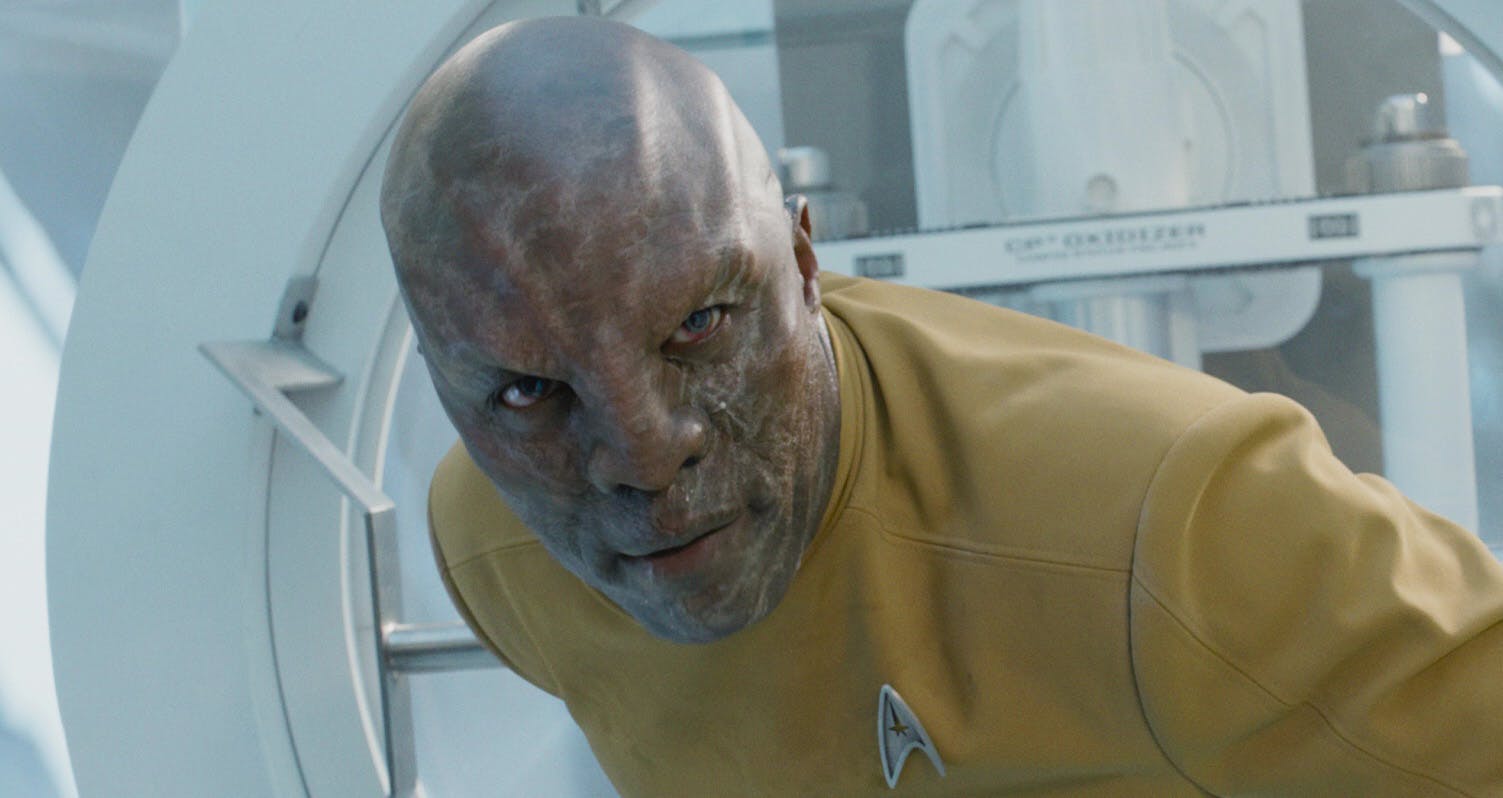
Star Trek Beyond
StarTrek.com
For a roguish guide inspired by Section 31, honing in on those motivated by questionable moral judgments is a fitting conclusion to our analysis. While this category encompasses multiple approaches to insubordinate behavior, it is united by the flawed and flexible quality of the logic and values employed by its proponents.
Formerly known as Captain Balthazar Edison, the Kelvin Timeline's Krall bottled up such hatred for the Federation while stranded on Altamid that it twisted his perception of the coalition's very existence. Believing the Federation needed to crumble in order to make humanity strong, Krall targeted Starbase Yorktown for destruction in .
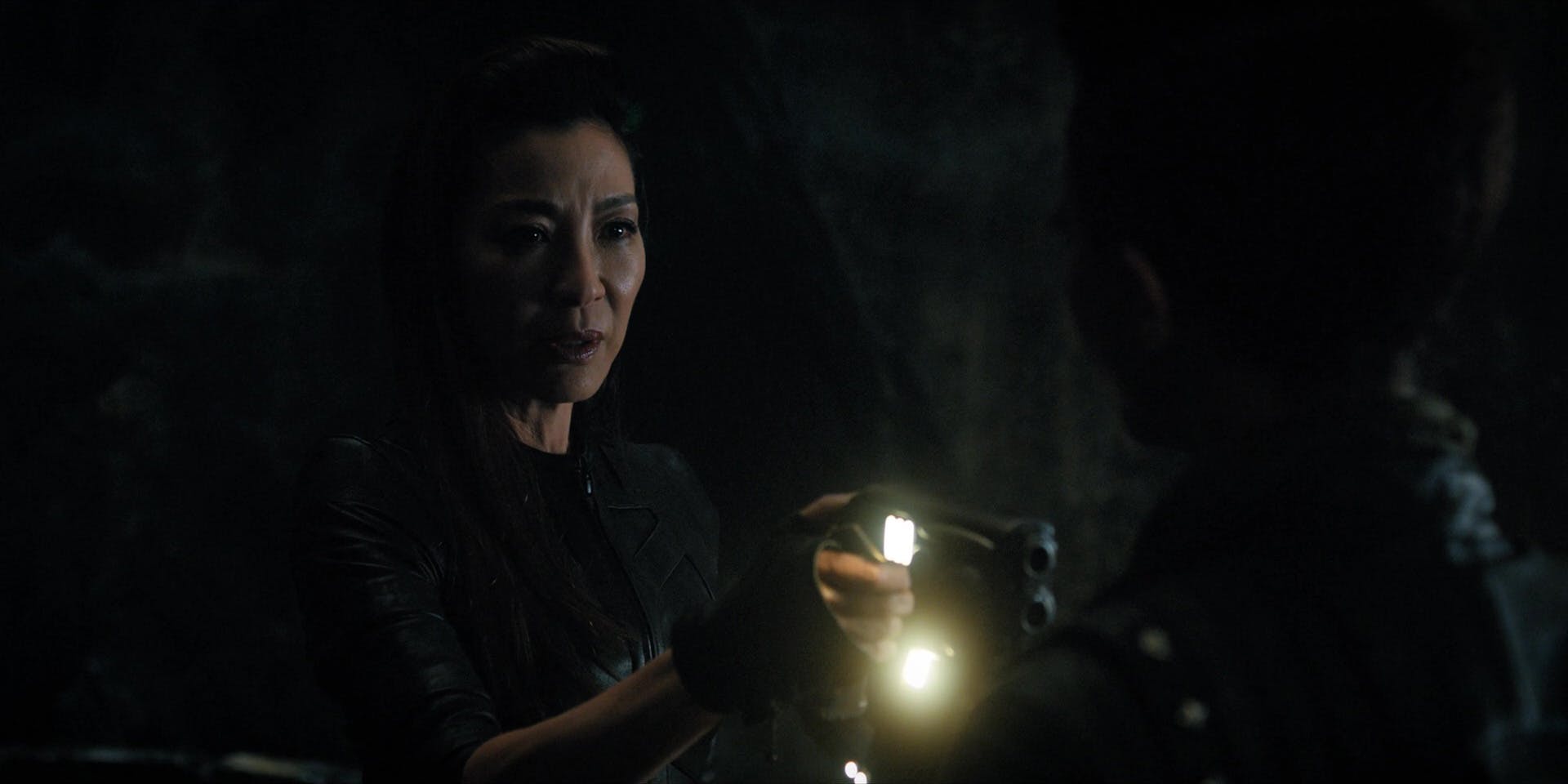
"Will You Take My Hand?"
StarTrek.com
No discussion about enigmatic ethics would be complete without mentioning the Terran Empire's Philippa Georgiou, who intended to go through with Starfleet's apocalyptic tactic to devastate the Klingon homeworld even after Admiral Cornwell had changed her mind about.
Even though Georgiou would still get her freedom, her thought process went right to duplicity, as she offered Michael Burnham the opportunity to join her and have Starfleet and the Klingons at their mercy in 's "Will You Take My Hand?" Burnham convinced Georgiou to relent by placing herself in the line of fire and emphasizing that Starfleet would hunt the Terran down for the rest of her days.
As mentioned above, other factors were also at play in Krall and Georgiou's readiness to turn their backs on the Federation — such as Krall's desperation and Georgiou's loyalty to herself — but their fluctuating moral compasses were at the heart of the matter. Then again, the controversial nature of Starfleet officers' motivations for going rogue is a large part of what makes their decisions so engaging and noteworthy… as well as an excellent reason to check out Section 31's latest exploits when Star Trek: Section 31 arrives in January!





